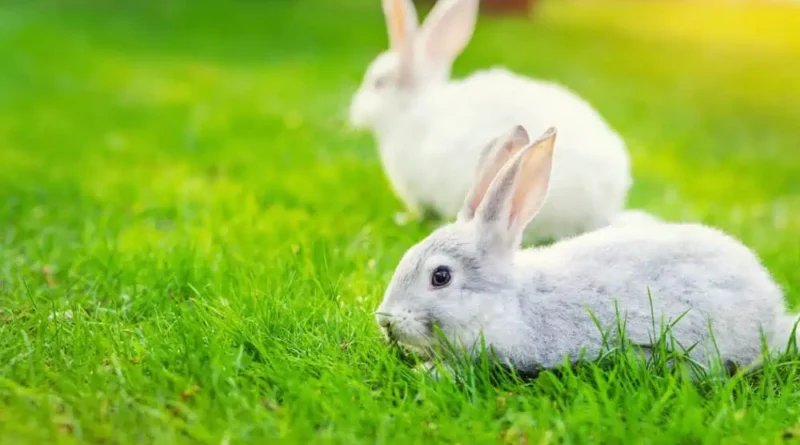How to Protect Your Pet Rabbit from Predators?
How to Protect Your Pet Rabbit from Predators?
Rabbits are cute, cuddly animals that make great pets. However, they can be in danger due to the presence of predators. Bears, coyotes, foxes, hawks, and even domesticated cats or dogs can snatch a rabbit without warning. If you’re a rabbit owner and want to keep your pet safe and sound, here’s what you need to know about the animals that eat rabbits and nine ways to protect your rabbit.
Do bears eat rabbits?
Yes. Bears are omnivorous, meaning they eat both plants and animals. In the wild, bears will forage for food such as fruits, nuts, and smaller animals like rabbits. Bears are also very powerful, so they can easily snatch up a rabbit in their claws or jaws if given a chance. Bears eat rabbits mainly for sustenance, so it’s important to protect your pet rabbit from bears if you live in a bear-populated area.
It does not just bear that eats rabbits; many other predators hunt for them as well. Coyotes, foxes, and domesticated cats are all-natural predators of rabbits. Hawks and owls also hunt for small animals, such as rabbits, as part of their diet. Even domesticated dogs may view a small pet rabbit as prey if left unattended outside for an extended period. Knowing which creatures pose a threat is the first step in protecting your pet rabbit from becoming dinner for another animal.
How Can You Protect Your Rabbit?
1) Keep Your Rabbit Indoors – Keeping your rabbit indoors is the best way to ensure its safety from predators like coyotes or foxes; it also reduces the chances of getting lost or stolen. Ensure you create an enriching environment with plenty of toys and activities so the bunny won’t get bored inside the house.
2) Supervise When Outdoors – If your rabbit goes outdoors (e.g., for supervised playtime), ensure you stay close to intervene if a predator appears nearby.
3) Create A Fenced Area – If possible, build a fence around any outdoor area where your rabbit spends time (e.g., backyard). This will help keep larger predators at bay while giving your bunny some outdoor playtime safely away from potential danger spots like brushy areas or overgrown yards with lots of hiding places for predators like coyotes.
4) Utilize Motion-Sensor Lights – Motion-activated lights can prevent potential nighttime visitors such as raccoons or skunks. These lights will come on when triggered by movement in the area, startling any would-be predators away before they have a chance to cause trouble.
5) Use Mesh Coverings – To prevent birds such as hawks or owls from swooping down on unsuspecting bunnies below, cover outdoor pens with mesh netting when leaving them unprotected
6) Watch For Signs Of Stress – If you notice signs of stress in your pet (e.g., panting, restlessness), this could mean danger lurking nearby; take extra steps to ensure their safety by bringing them indoors until you know it’s safe again.
7) Remove Outdoor Food Sources – Removing food sources around your home will reduce the likelihood of attracting animals seeking food near where your pet plays; this includes securing garbage cans and removing bird feeders from nearby areas.
8) Monitor The Weather – Knowing when inclement weather is approaching (e.g., heavy snowfall or thunderstorms) can help alert you to potential dangers posed by large predators, such as bears, during extreme conditions; bring pets indoors during these times until it’s safe again.
9) Install Security Cameras – Installing security cameras around key entry points in fences or other barriers can give you peace of mind knowing that any potential intruders will be caught on camera before they have a chance to do harm.
Conclusion:
Predatory animals pose a real threat to domestic rabbits, whether kept indoors or outdoors. By understanding which animals pose threats and taking proactive steps towards protecting them (such as keeping them indoors, supervising when outdoors, building fencing/barriers around outdoor play areas, etc.), owners can make sure their beloved bunnies stay safe from harm caused by their natural predators!




